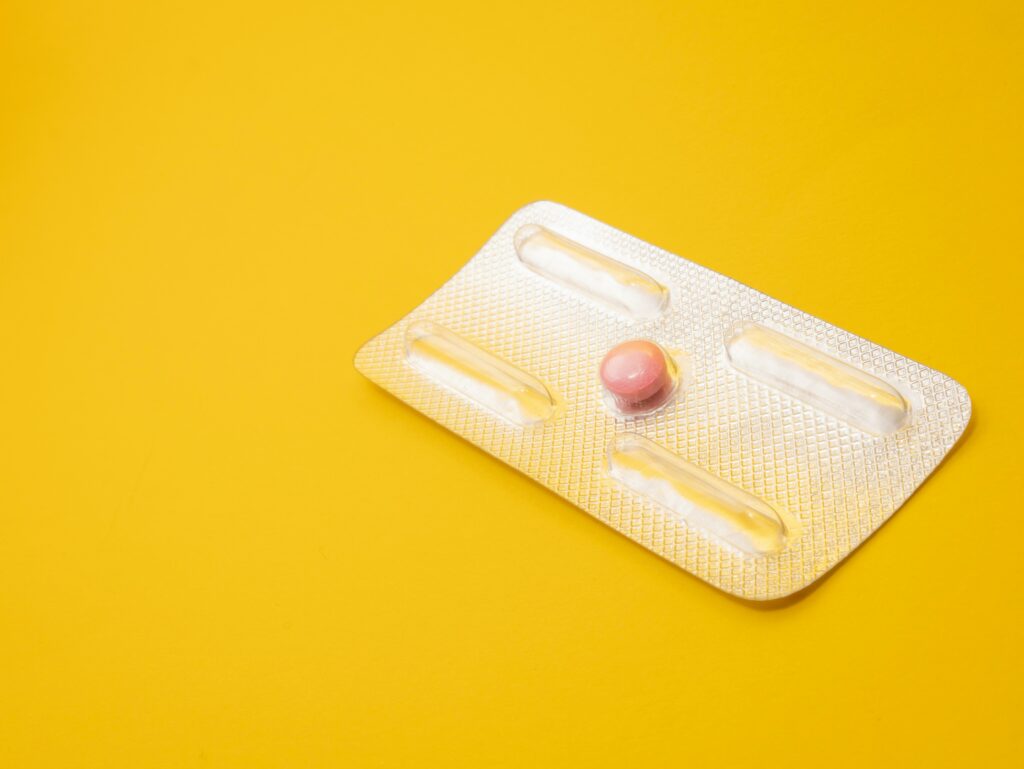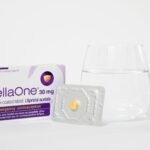
In today’s fast-paced world, emergencies can happen when we least expect them. This is why emergency contraception has become a crucial option for women looking to prevent unintended pregnancies. But just how effective is emergency contraceptive pill? In this article, we will delve into the facts and shed light on its efficacy.
Table of Contents
What is an Emergency Contraceptive Pill?
An emergency contraceptive pill, also known as the morning-after pill, is a form of birth control that can be taken after unprotected sex or contraceptive failure to reduce the risk of pregnancy. It is a high dose of hormones, usually containing levonorgestrel or ulipristal acetate, which work to prevent or delay ovulation, inhibit fertilization, or alter the lining of the uterus to prevent implantation.
How Does the Emergency Contraceptive Pill Work?
The mechanism of action of the emergency contraceptive pill is dependent on the specific type of pill taken. Levonorgestrel-based pills mainly work by inhibiting or delaying ovulation, while ulipristal acetate pills can also affect the implantation process. By preventing ovulation, the release of an egg from the ovary is delayed or suppressed, making it less likely for fertilization to occur. If fertilization has already taken place, the emergency contraceptive pill can alter the uterine lining, making it less receptive to implantation.
How Effective Is Emergency Contraceptive Pill?
The effectiveness of the emergency contraceptive pill is influenced by several factors, including the timing of its use and individual characteristics. Studies have shown that if taken within 72 hours after unprotected sex, the emergency contraceptive pill can be up to 89% effective in preventing pregnancy. However, its effectiveness decreases over time, with the highest efficacy observed within the first 24 hours.
It is important to note that the effectiveness of the emergency contraceptive pill decreases as time passes after unprotected sex. If taken within 24 hours, the pill is estimated to be 95% effective. This drops to around 85% if taken between 25 to 48 hours, and to approximately 58% if taken between 49 to 72 hours. Therefore, it is crucial to take the emergency contraceptive pill as soon as possible to maximize its effectiveness.
Factors that can affect the effectiveness of emergency contraception

Several factors can influence the effectiveness of emergency contraceptive pills. These include:
- Timing: Emergency contraceptive pills are most effective when taken as soon as possible after unprotected sex. The effectiveness decreases with each passing hour.
- Body weight: There is some evidence to suggest that emergency contraceptive pills may be less effective in women with higher body weight.
- Medications and medical conditions: Certain medications, such as enzyme-inducing drugs, can reduce the effectiveness of emergency contraceptive pills. It’s important to consult with a healthcare professional to ensure that the chosen pill will not interact with any other medications or medical conditions.
- Previous use: If a woman has used emergency contraceptive pills multiple times in a single menstrual cycle, the effectiveness of subsequent doses may be reduced.
- Contraindications: Emergency contraceptive pills should not be used by women who are allergic to any of the ingredients or have specific medical conditions. It’s important to read the instructions and consult with a healthcare professional if there are any concerns.
Understanding these factors can help women make informed decisions about the most effective and appropriate use of emergency contraceptive pills in their specific circumstances.
Common misconceptions about emergency contraception
Despite the widespread availability and use of emergency contraceptive pills, there are still several misconceptions surrounding their effectiveness and usage. Let’s address some of these misconceptions and provide accurate information:
- Emergency contraceptive pills are not the same as abortion pills: Emergency contraceptive pills work by preventing pregnancy, not by terminating an existing pregnancy. They do not cause abortion.
- Emergency contraceptive pills do not affect future fertility: There is no evidence to suggest that emergency contraceptive pills have any long-term effects on a woman’s fertility. They are safe to use and do not impact future reproductive health.
- Emergency contraceptive pills do not protect against sexually transmitted infections (STIs): Emergency contraceptive pills are solely intended to prevent pregnancy and do not offer protection against STIs. It’s important to use barrier methods, such as condoms, to reduce the risk of STI transmission.
- Emergency contraceptive pills can be used multiple times in a menstrual cycle: While emergency contraceptive pills are safe to use, they should not be relied upon as a regular form of contraception. It’s important to use more effective and reliable methods of contraception for ongoing protection.
- Emergency contraceptive pills do not cause infertility: There is no evidence to suggest that emergency contraceptive pills cause infertility. They are a temporary solution for preventing pregnancy and do not have any long-term effects on a woman’s reproductive system.
By dispelling these misconceptions, women can have a clearer understanding of emergency contraceptive pills and make informed decisions about their reproductive health.
Note: Explore our blog on STI Vs STDs
Side effects of emergency contraceptive pills
Emergency contraceptives, like any other drug, can cause negative effects. These side effects are generally mild and temporary, and most women experience no adverse effects. However, it’s important to be aware of the potential side effects.

Common side effects of emergency contraceptive pills may include:
- Nausea and vomiting: Some women may experience mild nausea or vomiting after taking emergency contraceptive pills. Taking the pill with food can help alleviate these symptoms.
- Fatigue: Feelings of tiredness or fatigue are common side effects and usually resolve within a day or two.
- Breast tenderness: Some women may experience temporary breast tenderness or discomfort after taking emergency contraceptive pills.
- Irregular menstrual bleeding: Emergency contraceptive pills can sometimes cause changes to the menstrual cycle, leading to irregular bleeding or spotting. It is usually nothing to worry about as these changes are only temporary.
- Headaches: Headaches are a potential side effect of emergency contraceptive pills, although they are generally mild and short-lived.
It is advised to get additional advice from a healthcare provider if any side effects worsen or continue.
When to Use the Emergency Contraceptive Pill
The emergency contraceptive pill is intended for use in emergency situations. It should not be used as a regular form of birth control, as it is not as effective as other contraceptive methods. The pill is most effective when taken as soon as possible after unprotected sex or contraceptive failure. Remember, the longer you wait, the less effective it becomes.
How to Use the Emergency Contraceptive Pill
To ensure the maximum effectiveness of the emergency contraceptive pill, it is important to follow the instructions provided by the manufacturer or healthcare professional. Typically, the pill is taken as a single dose, although some regimens may involve taking multiple pills. It is important to read the package insert or consult a healthcare professional to understand the specific instructions for the pill you are using.
Other Options for Emergency Contraception
While emergency contraceptive pills are a popular choice for preventing unintended pregnancies, there are alternative methods available. These alternatives include:
- Copper IUD: The copper intrauterine device (IUD) is a highly effective form of emergency contraception. It can be inserted by a healthcare professional up to five days after unprotected sex and can also serve as a long-term contraceptive method.
- Regular contraception: Using regular contraception methods, such as birth control pills, patches, injections, or hormonal IUDs, can provide ongoing protection against unintended pregnancies. These methods are more effective and reliable than emergency contraceptive pills.
- Barrier methods: Condoms, diaphragms, and cervical caps are barrier methods that can be used to prevent pregnancy. Additionally, they provide defence against STDs.
- Fertility awareness methods: Tracking the menstrual cycle and identifying fertile days can help couples avoid unprotected sex during the most fertile period. This method requires careful monitoring and understanding of the menstrual cycle.
It’s important to consider these alternatives and choose the most suitable method based on individual preferences, lifestyle, and healthcare professional recommendations.
Note: Explore “Which Dry Fruits are Good for Diabetes Management”
Conclusion and final thoughts
Emergency contraceptive pills are a valuable option for preventing unintended pregnancies when used correctly and in a timely manner. They work by preventing or delaying ovulation, fertilization, or implantation of a fertilized egg. However, it’s important to note that emergency contraceptive pills are not intended for regular contraception and may not be 100% effective in preventing pregnancy.
Understanding the effectiveness, usage, and potential side effects of emergency contraceptive pills is crucial for making informed decisions about reproductive health. By dispelling common misconceptions and exploring alternative methods, women can take control of their contraception choices and protect their reproductive well-being.
Remember, emergency contraceptive pills are just one of the many options available. Consultation with a healthcare professional can provide guidance on the most suitable method for your individual needs and circumstances. By taking proactive steps towards responsible contraception, women can empower themselves and make informed choices about their reproductive health.
FAQs
Are the side effects of emergency contraceptive pills long-lasting?
No, typically, the side effects of emergency contraceptive pills are short-term and tend to subside on their own. However, if any side effects persist or worsen, it is advisable to seek guidance from a healthcare professional.
How soon after unprotected sex should I take the emergency contraceptive pill for it to be effective?
The emergency contraceptive pill is most effective when taken as soon as possible after unprotected sex or contraceptive failure. Remember, the longer you wait, the less effective it becomes.
What is the recommended dosage for emergency contraceptive pills?
The dosage may vary depending on the specific pill you are using. It’s crucial to follow the instructions provided by the manufacturer or healthcare professional. Typically, it involves taking a single dose, but some regimens may require multiple pills.
Can emergency contraceptive pills be used as a regular form of birth control?
No, emergency contraceptive pills should not be used as a regular form of birth control as they are not as effective as other contraceptive methods.






